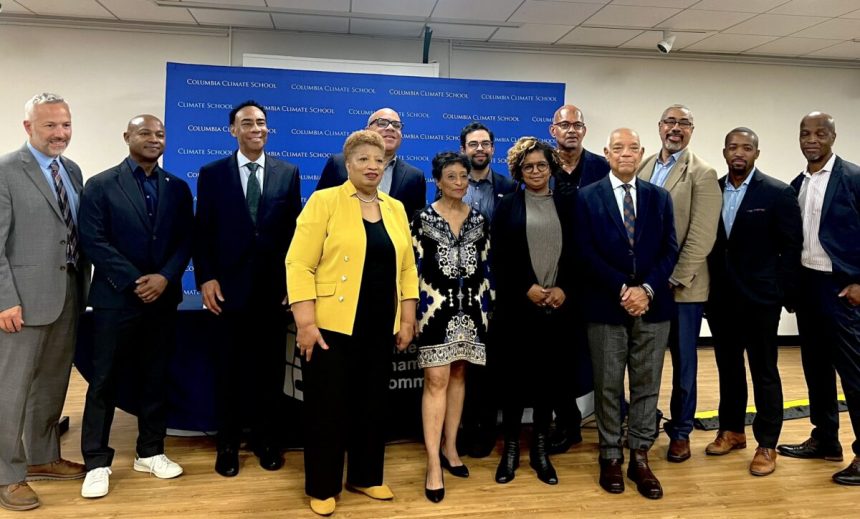On August 7th, a diverse group of practitioners, activists, and business and community leaders came together for a thought-provoking discussion on “Climate and Environmental Justice in Harlem: A Discussion of New York City’s Plans.” The event, sponsored by the Columbia Climate School and the Greater Harlem Chamber of Commerce, delved into the impacts of climate change and polluting industries on the health and well-being of disadvantaged communities, as well as the efforts being made to address the environmental burdens faced by marginalized neighborhoods in New York City. Video highlights and selected quotes from the event can be found below.
The gathering, titled “Climate and Environmental Justice in Harlem,” was a part of Harlem Week 2024: Celebrate the Journey, marking the 50th anniversary of the annual community celebration. Harlem Week originated in 1974 with the aim of fostering a positive atmosphere amidst challenging economic and social times in New York City. To learn more about Harlem Week, visit their website.
During the event, Elijah Hutchinson, the executive director of the Mayor’s Office of Climate and Environmental Justice, emphasized the groundbreaking work being done in New York City to operationalize environmental justice within the mayor’s office. One notable achievement is the EJNYC Report, produced in collaboration with environmental justice nonprofit We Act, which provides a comprehensive assessment of the historic environmental burdens and benefits experienced by New Yorkers. Additionally, initiatives such as Local Law 97 and the city’s ambitious targets for carbon neutrality and renewable energy signify the city’s commitment to sustainable practices.
The discussion also shed light on the critical intersection between climate and health, particularly in communities like East Harlem where environmental justice issues are prevalent. Elijah Hutchinson highlighted the disproportionate impact of heat-related deaths on black and brown New Yorkers and emphasized the urgent need for action to address these disparities.
Furthermore, the conversation explored the importance of the built environment in promoting environmental justice, with a focus on issues like peaker power plants and urban forestry. Elijah Hutchinson underscored the necessity of transitioning to renewable energy sources and increasing green spaces in vulnerable neighborhoods.
In the realm of community activism, Sheila Foster, a professor at the Columbia Climate School, highlighted the interconnectedness of environmental challenges with social and economic inequities. Issues such as redlining and disinvestment have perpetuated environmental injustices in historically marginalized communities, including Harlem.
Patricia Ramsey, the president of Medgar Evers College, reflected on the college’s commitment to social justice and drew parallels between past civil rights struggles and present-day environmental justice movements. She emphasized the need for greater accountability and proactive measures to address environmental insults in black and brown communities.
The economic implications of environmental justice were also discussed, with Elijah Hutchinson detailing the city’s efforts to boost green job opportunities and invest in sustainable industries. He stressed the importance of connecting these economic opportunities to communities disproportionately impacted by environmental harms.
In closing, the event’s speakers shared impactful reflections on the urgency of addressing climate change and environmental justice. Patricia Ramsey urged attendees to consider Earth as a finite spaceship, emphasizing the need to protect its resources for future generations. The discussions sparked by “Climate and Environmental Justice in Harlem” underscored the importance of collective action and advocacy in creating a more equitable and sustainable future for all.






